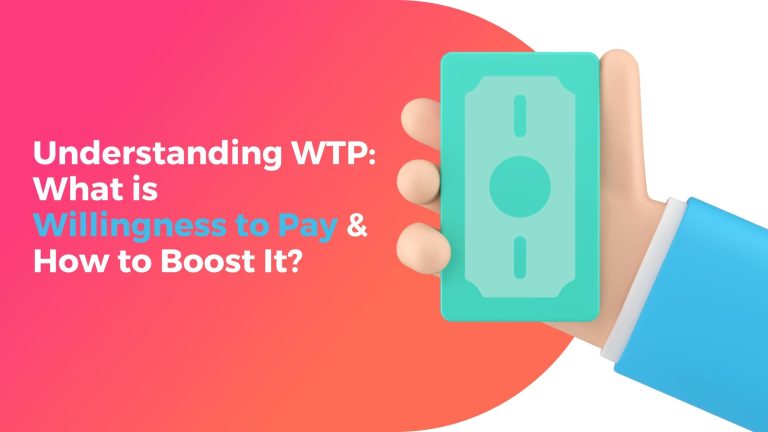How To Negotiate With An Existing Customer You Can’t Afford to Lose?
Every business owner knows the routine: Find your most important customers and retain them. These are the customers you can’t afford to lose. You go all out to meet their requests, even if it’s tough or not making much profit. Since these customers know they’re crucial, they try to save money whenever they can. Even customers who carefully choose suppliers through a strict process know they can get discounts by pushing suppliers on prices. This process is tough. That’s why a recent study found that salespeople stress the most about talking about prices compared to other parts of making a sale.
How do you negotiate with a demanding customer?
Talking with a customer who asks for a lot needs good talking and problem-solving skills. First, listen carefully to what they say, understand how they feel, and know what they want. Stay calm and friendly when you talk to them.
Find things you both agree on and try to find solutions that work for both of you. Suggest other ideas that meet their needs and also fit what your business can do. Show why your product or service is helpful for them.
It’s important to be flexible, meaning you’re willing to find a middle ground without hurting your business. Explain why you suggest certain things and why it’s good for the customer too. Aim for a solution where everyone feels happy.
Always keep the customer in mind and promise to make them happy. If needed, get other team members or bosses involved to find good solutions. Remember, talking and finding solutions together builds trust and makes your relationship with the customer stronger, even when things are a bit tough.
What do you need to know if you’re about to negotiate with a customer?
When you’re going to have a talk with a customer, there are some important things to keep in mind. Let’s break them down in simple terms:
- Understand That You’re Valuable to Them Too:
You’re not just selling something; you bring value to the customer. Think about what makes your product or service special. It helps the customer in some way, and that’s why they want it. Realize that your business matters to them, and you’re not just any seller. - Realize That Lowering Prices Now Leads to More Low Prices:
If you lower your prices too much, it might become a habit for the customer to always expect low prices. It’s like setting a rule that everything should be cheaper. So, be careful about lowering prices too quickly. You want to offer a fair price for the value you provide. - Some Customers Play Hardball For No Reason:
Not everyone negotiates the same way. Some customers might act tough just because, not because they really need a lower price. Be aware that this happens, and don’t feel pressured to give in too quickly. Stick to what’s fair for your business. - Position Yourself As a High-Quality Provider:
Show the customer that what you offer is top-notch. Even if you’re open to negotiations, make it clear that your product or service is of high quality. Emphasize the value they get from choosing you. When they see the quality, they’re more likely to understand the fair price you’re offering.
In simpler terms, when you talk to a customer, remember that what you offer is valuable. Be cautious about lowering prices too much because it might become a habit. Know that some customers act tough without a real reason, so stay fair. Lastly, let them see that you’re all about high quality, and the value they get is worth it. Keep these things in mind, and your talks with customers will be more successful.
Read Also: How to Handle Customers Who Don’t Pay On Time?
What are the negotiation techniques and strategies with customers?
Let’s talk about ways to have good discussions with customers. It’s like finding solutions together. Here are some simple ideas to help:
- When under attack, listen:
If a customer is upset or has concerns, listen carefully. Understand what they’re saying and why they feel that way. Listening helps you figure out how to work together for a solution. - Keep track of the issues requiring discussion:
Write down the things you need to talk about. It’s like making a list. This keeps everything clear and helps you focus on what needs fixing. - Assert your company’s needs:
Tell the customer what your business needs, too. It’s important that both sides are happy. If there’s something your business can’t do, be clear about it. This honesty helps in finding the best solution. - Commit to a solution only after it’s certain to work for both parties:
Decide on a solution only when both you and the customer agree it’s a good idea. Don’t rush into things. Make sure everyone is happy with what’s decided. - Save the hardest issues for last:
Start with the easier things to talk about. This builds a positive atmosphere. Save the trickier topics for later when you both understand each other better. - Start high and concede slowly:
When discussing prices or terms, start with what you really want. Then, you can make small changes. This way, you’re working towards an agreement that suits both sides. - Don’t be trapped by emotional blackmail:
Sometimes, people might use emotions to get what they want. Stay focused on the facts. Don’t let emotions guide the discussion. Stick to what’s fair and reasonable.
When talking with customers, listen carefully, keep a list of things to discuss, and share what your business needs. Only decide on solutions that everyone agrees with, and start with easier topics before moving to tougher ones. When it comes to prices or terms, start with what you really want and make small changes. And remember, stick to the facts and what’s fair, and don’t let emotions guide the talk. These simple ideas will make your discussions with customers smoother and more successful.
See Also: How Do I Retain My Existing Customers?
FAQs – Negotiate with Customers
Here are some common questions you might be thinking about:-
- Does it make sense to ‘negotiate’ a deal during a crisis?
Yes, negotiating during a crisis can make sense. It’s like finding ways that work for everyone, even when things are tough. By talking and working together, people can find solutions that help everyone get through the hard times. - What’s the Discount for?
A discount is like a special deal to make something a bit cheaper. It could be because you’re a good customer or buy a lot. Sometimes, it’s a way to make the deal more attractive. Asking for a discount is normal, and it’s about finding a fair price for both. - What’s the final no-regret price or walkaway point for this deal?
The “no-regret price” is the amount where you feel happy with the deal, and you won’t regret it later. The “walk away point” is when the deal isn’t good for you, and it’s okay to say no. It’s like having a limit on what you can agree to. Knowing these points helps you make choices that feel right for your business.
Wrapping It Up
So, that’s the end of our talk about negotiating with important customers. Remember, it’s all about finding solutions that work for both of you. Listen well, be clear about what you need, and find ways to make everyone happy. Even if it seems tricky, using these tips can make your negotiations smoother. Don’t forget, you’re not alone – get your team involved if needed. Building good relationships with your customers is key, so negotiate wisely and keep those valuable connections strong. Happy negotiating!













